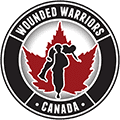WORKSHOP OUTLINE:
Facilitator: Alex Sterling, MA RCC Duration: 4hrs
Facilitator:
Alex Sterling, MA RCC
Duration: 4hrs
Learning outcomes:
1. Participants will leave this workshop with an understanding of how trauma is defined clinically, what constitutes a traumatic event, and how individuals become traumatized in the first place.
2. Participants will leave this workshop with an understanding of the ways that trauma effects the whole person and their relationships using the BETR (Body, Emotions, Thoughts and Relationships) Model as a framework. They will also learn a tool for assessing their own impacts from stress (BETR check).
3. Participants will leave this workshop with an understanding of how trauma effects the brain and nervous system, and how these effects manifest in behaviour and everyday functioning.
4. Participants will learn about common myths surrounding trauma treatment and receive research-based information on the basics of trauma treatment and processes to increase their understanding of trauma recovery expectations.
5. Participants will leave this workshop with an understanding of the significance of post-trauma responses and how they can aid trauma recovery and improve outcomes in the scope of their role.
6. Participants will learn the core tenets of trauma informed practice: choice, voice and control, and have an opportunity to explore how these can be applied in their roles.
7. Participants will learn simple but effective tools to help them and the people they work with regulate stress and trauma symptoms.
WORKSHOP COMPONENTS
1. Introductions
2. Defining Trauma
Defining a traumatic event
The “Trauma Formula”
How is trauma defined clinically
– Signs and symptoms
3. The BETR Model
The BETR Check
4. Trauma & the Brain
Limbic system & the “lizard brain”
5. Trauma treatment myths & mysteries
The basics of effective practice
6. The impact of post-trauma social responses
The power of your role in trauma recovery
“What should I say?”
“What should I do?”
7. Core tenets of trauma informed practice
Choice, voice, control
8. Simple but effective tools
The FORGE process
Breathing strategies
5-4-3-2-1 grounding
9. Closing
ALEX STERLING, MA, RCC
WWC ASSOCIATE CLINICIAN
Alex Sterling MA, RCC is a Senior Associate Clinician with Wounded Warriors Canada, specializing in clinical work with Trauma Exposed Professionals, and working extensively in promoting trauma informed work environments across Canada. She has co-developed multiple, nationally delivered programs including WWC’s TRT, TRT-L and Trauma Resiliency Programs (TRP1 and TRP2) and has trained trauma clinicians internationally to deliver the WWC COPE program.

